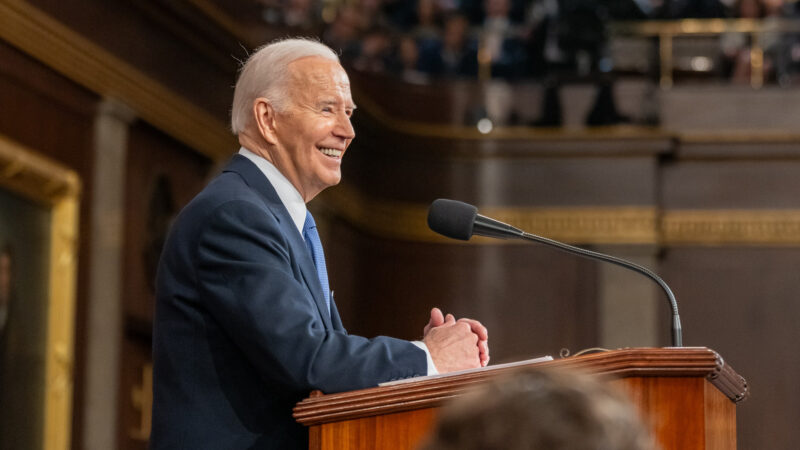Cash Tax Credits
Championing Prosperity: In the Mix of 2024’s Crucial Debates, Tax Fairness Takes Center Stage
03. 14. 2024
Research by Open Labs and Blue Rose Research shows framing an economic agenda as tax fairness is among their best messages tested.

As President Biden takes his economic agenda to battleground states amid fervent debates in Congress over his budget proposal and the bipartisan proposal to expand the Child Tax Credit, new research from Open Labs and Blue Rose Research for Economic Security Project Action provides crucial insight into the electorate’s responsiveness. In a political climate where economic disparities are escalating and the financial burden on middle and lower-income families is intensifying, our findings underscore the significance of a tax fairness narrative with voters across the nation, offering an essential strategy for shaping the discourse in races from the top of the ticket down.
Through a national randomized controlled trial in early March 2024, Open Labs and Blue Rose Research found framing the Child Tax Credit in a broad tax fairness narrative was in the 99th percentile of all messages they have tested:
Democrats say you should support DEMOCRATIC CANDIDATE because they want to lower costs for middle-class families. They say they would expand tax credits for millions of working parents, make billionaires pay what they owe in taxes, and close tax loopholes for corporations.
Our message and results presaged President Biden’s emphatic stance on tax equity during his State of the Union address a few days later, where he questioned the necessity of tax breaks for the wealthy and corporations, vowed to persist in his fight to lower costs for middle-class families, and championed the Child Tax Credit for significantly reducing child poverty:
“Do you really think the wealthy and big corporations need another $2 trillion in tax breaks? I sure don’t. I’m going to keep fighting like hell to make it fair! Under my plan nobody earning less than $400,000 will pay an additional penny in federal taxes. Nobody. Not one penny.”
“In fact the Child Tax Credit I passed during the pandemic cut taxes for millions of working families and cut child poverty in HALF. Restore the Child Tax Credit because no child should go hungry in this country!”
“The way to make the tax code fair is to make big corporations and the very wealthy finally pay their share.”
Detailed message research findings
The findings reveal our message’s significant potential to influence voters in the lead-up to the 2024 election and into 2025, when Congress will debate the renewal of corporate tax breaks passed in President Trump’s Tax Cuts and Jobs Act.
- Positive Movement on Biden Approval. Advocating for tax fairness led to a 1.9% boost in approval ratings for President Biden, positioning this message in the 99th percentile among those tested by Open Labs and Blue Rose Research.
- Significant Boosts in Congressional Support. Our message increased support by 3.3% in hypothetical House races and 3.0% in Senate races, ranking these results in the 98th percentile for effectiveness in voter influence.
- Broad Demographic Appeal. The message resonated widely, particularly among:
- Young voters (18-24) who showed a 2.6% rise in Biden approval;
- Moderate voters who showed a 2.4% rise in Biden approval;
- Hispanic voters who showed a 3.6% increase in Senate vote choice; and
- White non-college-educated voters who showed a 3.5% increase in House vote choice.
These results underscore a strategic pathway in the months ahead: anchoring economic policies in a tax fairness narrative significantly enhances public support, transcends political lines, and resonates with core values to mobilize a diverse electorate.
Lowering costs for families, expanding tax credits for parents, and billionaires paying what they owe in taxes: this narrative does not just align with current policy debates—it also amplifies them, connecting deeply with voters’ aspirations for a more equitable economy. We believe that by championing this message, policymakers and advocates can forge deeper connections with the electorate, advancing policies that not only strengthen economic fairness but also enjoy widespread backing.